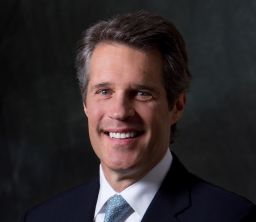Editor’s Note: Jim McDermott is the author of “Bitter Is the Wind,” a novel of working class aspirations, and a business litigation attorney based in Portland, Oregon. The opinions expressed in this commentary are his. Read more opinion articles on CNN.
Forty years ago, I worked on an assembly line and as a gas station attendant. Those minimum wage jobs helped put me through college and law school. Throw in government grants, scholarships, low interest loans and hard work, and a kid from an ordinary background was launched on a path to economic prosperity. I’m a good example of the upward mobility that has always been a critical feature of American capitalism. In hindsight, I can see that being born a white male also helped me.

Today, our capitalist system works very well for kids with private school educations and networks of well-off contacts. But sadly, American capitalism doesn’t seem to be working very well for many young people who are not born into families of privilege.
I look back now and wonder: How can we return to a place with more opportunities that lead to a better quality of life for all? I believe the answer is through a more progressive form of capitalism.
Along my journey of upward mobility, I married into an immigrant family. I’ve observed that my relatives in Europe enjoy a similar pathway to the American dream that I grew up chasing. Like much of Europe today, in many parts of 1970s America we had a better funded public education system, affordable colleges with generous student loan programs, solid union jobs and more affordable health care.
If we can recapture some of what we’ve lost from that era, make it more inclusive and add in subsidized child care, along with paid sick and parental leave, then we can build a 21st-century foundation for US capitalism that many working-class Americans long for. We could have a baseline social welfare infrastructure that would allow vastly more Americans the opportunity to reach their full potential.
We could pay for much of this by leveraging higher income and capital gains taxes on millionaires, higher corporate taxes, a wealth tax and a more progressive estate tax. I’m prepared to do my part.
This is not socialism. This is progressive capitalism.
Like many people who prospered in life after growing up in the working class, in my heart I’m a capitalist who wants to rebalance our current system. It doesn’t mean doing away with ultra-rich people. But it does mean making them less rich by distributing the benefits of capitalism more evenly. We can re-achieve a 1970s level of prosperity so that more of our fellow citizens can have a better chance to transform their lives.
Working-class Americans don’t want to smother innovation and entrepreneurship, two values that elevate us above many of our global competitors. After all, countless jobs come from risk-takers even though there is an undeniable element of luck involved in wealth creation. Nevertheless, many in the working class admire entrepreneurs and corporate leaders for their vision and drive. They understand that entrepreneurial capitalism is necessary to generate the societal wealth needed to fund a social welfare infrastructure.
Yet some in the working class feel betrayed by the financial and political elite in contemporary America. Many are faced with economic insecurity. If they’re older, they likely want their kids to do better than, or at least as well as, they’ve done. If they’re younger, they’re likely scared of inheriting a world of shrunken opportunities.
Covid-19 has only magnified the holes in our country’s social safety net. Too many working people have waited on hold with the unemployment office. Too many have waited endlessly for unemployment benefits to arrive. Some never received them. Too many working people feel isolated and angry.
American capitalism in the past 40 years has overvalued capital and devalued the dignity of work. That needs to be corrected. America’s workers don’t want handouts, but they deserve a baseline social welfare infrastructure that allows them the opportunity to climb the economic ladder while offering a decent safety net if they stumble. This means higher wages for their work and reliable, accessible and affordable health care. Not all Americans can be entrepreneurs or innovators. But working Americans still want to work hard, contribute to a common enterprise and have a greater measure of financial success.
It’s not about depriving the ultra-rich of their concierge doctors, but rather about preventing unforeseen medical expenses or a pandemic from driving working-class families into bankruptcy or rendering them homeless.
Get our free weekly newsletter
Many in the working class don’t feel respected by today’s policymakers, many of whom have ignored them for too long and, instead, have catered to the ultra-left or the ultra-right. The fact that capital continues to triumph while Covid-19 continues to spread has only exacerbated the disconnect between workers and the financial elite. Hopefully, policymakers finally will rectify this in 2021.
What both the 1% and the working class need to remember, though, is that they actually have a common bond: the need to feel that their lives have a meaningful upward trajectory. I should know. I’ve inhabited both groups, starting with the factory and gas station jobs that set me on my way so many years ago. I’ve learned that rebalancing capitalism stands the best chance of healing America’s current divisions.


